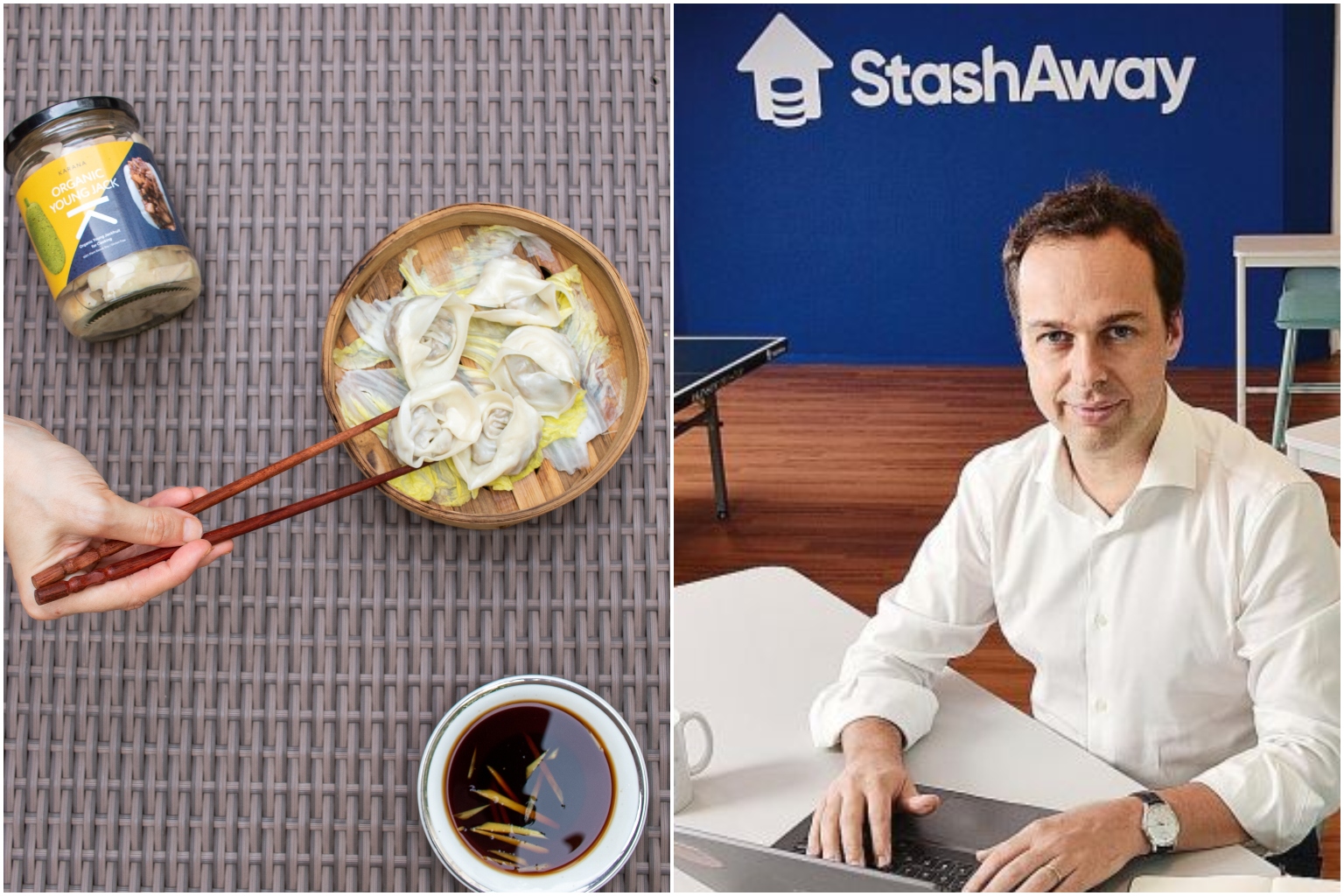Singapore start-ups catch investors' eye despite crisis
Nimble businesses can attract funds, tap support from private and public sectors
Sign up now: Get ST's newsletters delivered to your inbox

Karana (left) closed US$1.7 million in seed funding, while StashAway raised US$16 million.
PHOTOS: RACHEL TANG FOR KARANA, ST FILE
These are tough times to be running a business but the coronavirus pandemic has created opportunities across the economy that are tailor-made for nimble Singapore start-ups that can attract capital and utilise support from the private and public sectors.
Sectors such as technology and sustainability have generated huge potential, with some new operators beefing up their funding to take advantage.
Last month, plant-based meat start-up Karana closed US$1.7 million (S$2.3 million) in seed funding, while digital wealth management platform StashAway raised US$16 million in a recent funding round.
With enhancements to the Startup SG Founder programme announced earlier this week, budding entrepreneurs will get a further boost.
Enterprise Singapore director for start-up development Lim Seow Hui noted that while all sectors have been disrupted by the pandemic, new trends and opportunities in the near and long term have been created.
That is where start-ups can play a key role given their ability to drive innovation, she said, stressing the need to keep the entrepreneurship ecosystem conducive for their continued development.
500 Startups partner Vishal Harnal pointed out that leading start-ups made their breakthroughs during economic slowdowns, citing the likes of WhatsApp and Uber, which were founded after the 2008 global financial crisis.
Industries such as health technology, advanced manufacturing and education tech have caught the eye during the pandemic with their innovations, said Tribe Accelerator managing partner Ng Yi Ming.
Professor Freddy Boey, deputy president of innovation and enterprise at the National University of Singapore, said investors may be more wary of start-ups offering travel-or aviation-related solutions for now, while digital solutions and urban farming are gaining interest.
The pandemic has changed the risk dynamics for start-ups and industry, he said, adding: "Investors are still active but pickier in terms of the criteria and assessment - the quality of teams, type of products and services, and if business models have proven to be resilient during and after the Covid-19 situation."
Ms Lim said the key concerns for start-ups amid the pandemic include the loss of revenue and reduced cash flow due to weaker demand and a longer sales cycle, which is especially acute for firms serving sectors such as travel and hospitality, the arts and entertainment.
"It has become critical to rebalance cash burn rates, trim non-essential costs and build new ways to generate revenue for long-term sustainability," she said.
Ms Huang Shao-ning, partner at angel investor network AngelCentral, said investors have generally been more cautious in recent months given the muddy economic waters, helping to send valuations down by about 20 per cent to 30 per cent.
Ms Teodora Georgieva, programme director at accelerator Scaler8, said: "With the prospect of a protracted economic recession, investors are looking for start-ups that can demonstrate a more stable and realistic customer pipeline and revenue projection."
But while investors are exercising caution, there are still funds available to be deployed, said Mr Magnus Grimeland, chief executive of venture capital firm Antler.
He noted that while venture capitalists raised around US$100 billion over 2018 and last year, only a portion of this capital has been deployed, leaving a tremendous amount of dry powder available.
Ms Huang said some investors have revised their offers to start-ups during this period as well, which has resulted in offers at lower valuations.
But lower valuations in the short term will not matter much in the long run if entrepreneurs build a strong and successful business, said Mr Grimeland, emphasising that the opportunities for start-up growth are larger than ever with "decades worth of change in months in many industries".
Mr Harnal said there has been some recovery since the March to April period, when valuations had notably taken a hit with the global virus spread.
"Now, investors are getting used to the new (market) norms and there is some concentration of capital especially among firms which are seen to be (industry leaders) and those that are promising," he said.
This article has been edited for clarity.


